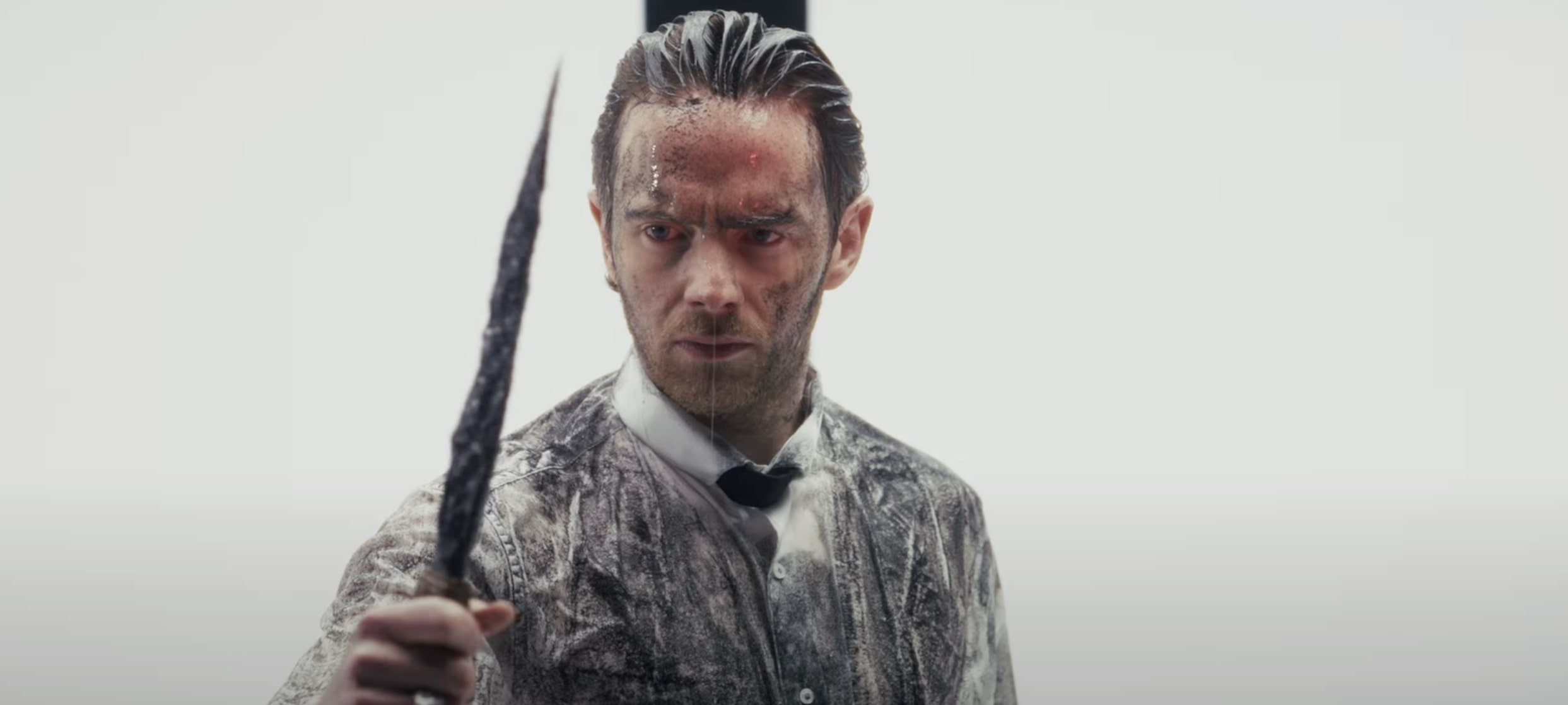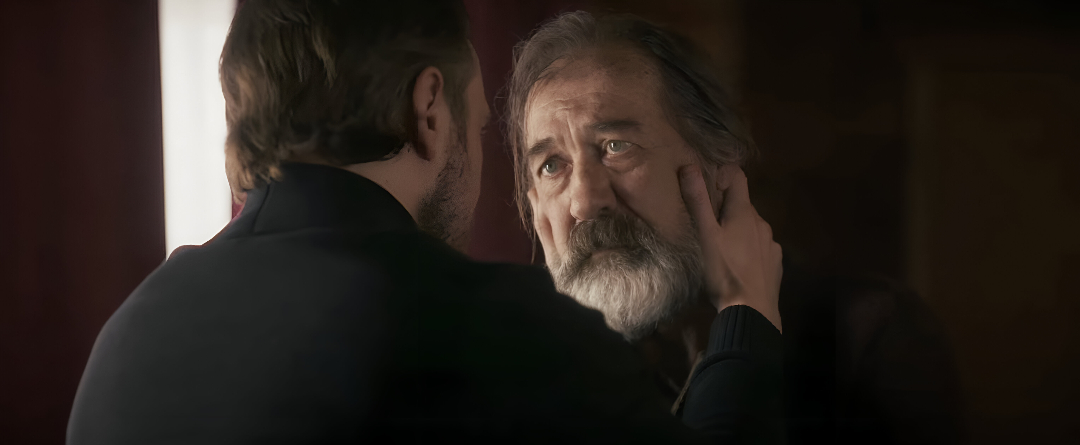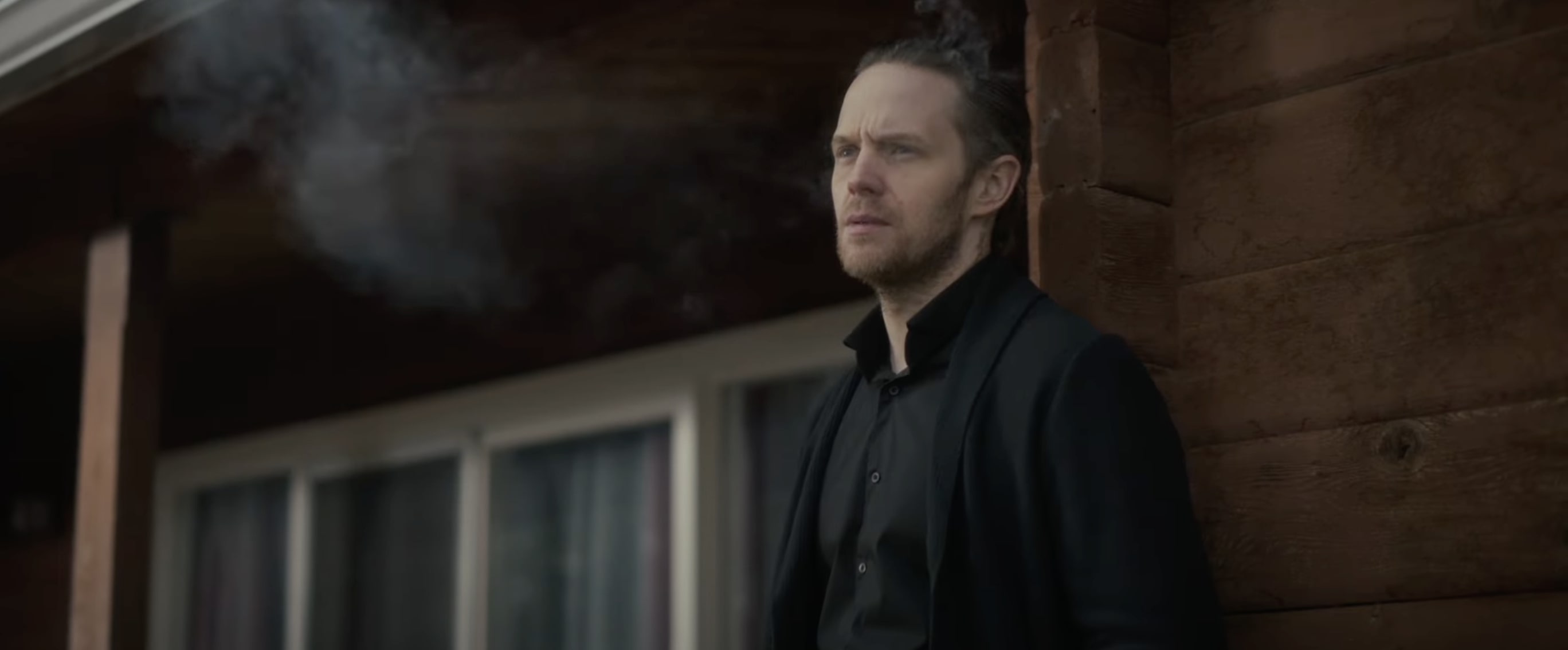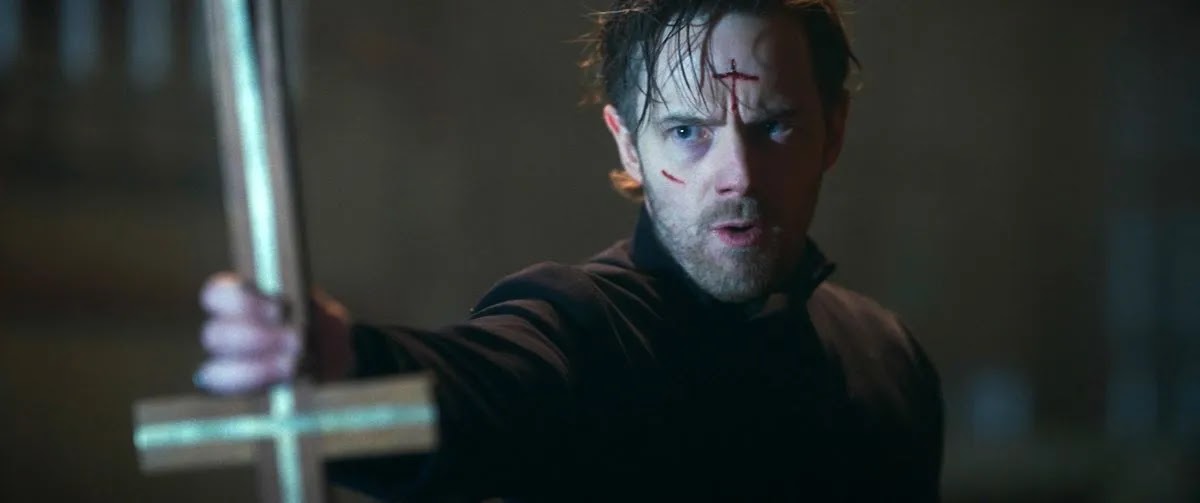Directed by Michael Peterson, Shudder’s ‘Shadow of God’ is a supernatural horror film that delves into the eerie intersections of faith, possession, and the haunting stillness of rural isolation. The story follows Father Mason Harper, a Vatican exorcist who returns to his childhood home after a series of grim events within the Church. As he reconnects with his past, a series of disturbing revelations unfold—ones that challenge the very boundaries between salvation and damnation. Given the film’s chilling tone, spiritual seriousness, and slow-burn dread, it’s natural for viewers to wonder if the events that occur in the movie are real.
Shadow of God is a Fictional Story Rooted in Religious Horror Traditions
Despite its eerily realistic atmosphere and spiritual depth, ‘Shadow of God’ is driven by a thoroughly fictional storyline crafted by Tim Cairo. The film draws heavily from established horror traditions—particularly those centered on exorcism, religious trauma, and existential dread. Since the beginning, director Michael Peterson has been upfront about his intentions with the story. “Exorcist movies have been done so many times. It’s a very predictable subgenre,” he said in an interview with Points of Review.

The filmmaker concluded, “But this was dealing with what I thought were provocative ideas.” Rather than adapting a real-life exorcism case or documented event, Peterson, Cairo and the team crafted a fresh narrative that explores spiritual horror in a more grounded, contemplative way. While the film features recognizable elements like Latin invocations and Catholic iconography, these are more about immersing the viewer in a believable world than recounting a true story.
Shadow of God Blurs Reality Between Belief And Terror
The believability of ‘Shadow of God’ lies in its tone and psychological weight. It doesn’t depend on jump scares or paranormal theatrics. Instead, it thrives on the dread of returning home—to the ghosts of your upbringing, to unresolved traumas, and to the unsettling idea that evil doesn’t always wear a monstrous face. It’s this internal horror—the fear of divine silence, the disillusionment with religious institutions, the weight of inherited sin—that makes the movie so haunting.

Cairo’s storytelling doesn’t just depict supernatural events; it actively invites viewers to question their own beliefs. In fact, the script was so provocative that some crew members walked away from the project. “There were a handful of crew that were like, ‘Oh, I can’t work on this. I don’t think it supports my belief system. I don’t like what it’s saying,’” Peterson revealed. But instead of toning it down, he leaned in. “To me, that was amazing—and a thumbs up that we were probably on the right path.”
The Frightening Realism in Shadow of God
Many horror films leverage the “based on a true story” claim to amplify fear. ‘Shadow of God’ doesn’t need that crutch; what it offers instead is a deeply immersive experience that feels true. The way it treats faith—not as a spectacle but as a lived and tested experience—adds a layer of authenticity. It doesn’t sensationalize possession but maintains a slow-burning seriousness in its presentation of spiritual crises, which makes the horror feel more grounded, and thus, more unsettling. Add to that the bleak rural setting, the minimal use of music, and the eerie sense of spiritual isolation, and you’ve got a film that almost tricks your brain into believing it could have happened. It plays with that ambiguity—between what’s real and what’s not—with deliberate precision.

Cairo and Peterson set out not just to scare but to provoke, and in doing so, they created a horror film that lingers—precisely because it feels like it could be true. In one scene, a character casually tunes the truck radio and stumbles upon a song from Ghostkeeper’s latest album—a twang-infused, country-inspired track that defies conventions, much like ‘Shadow of God’ aims to disrupt the traditional horror mold. “It’s an Easter egg,” Peterson said. “No one else will know, but I thought it was funny.” It’s that blend of the personal and the playful, the grounded and the grotesque, that makes ‘Shadow of God’ so unsettling. It doesn’t just tap into fear—it embeds itself in the quiet spaces of your mind long after the credits roll.
Read More: Is 825 Forest Road a True Story? Is Helen Foster Based on a Real Person?


